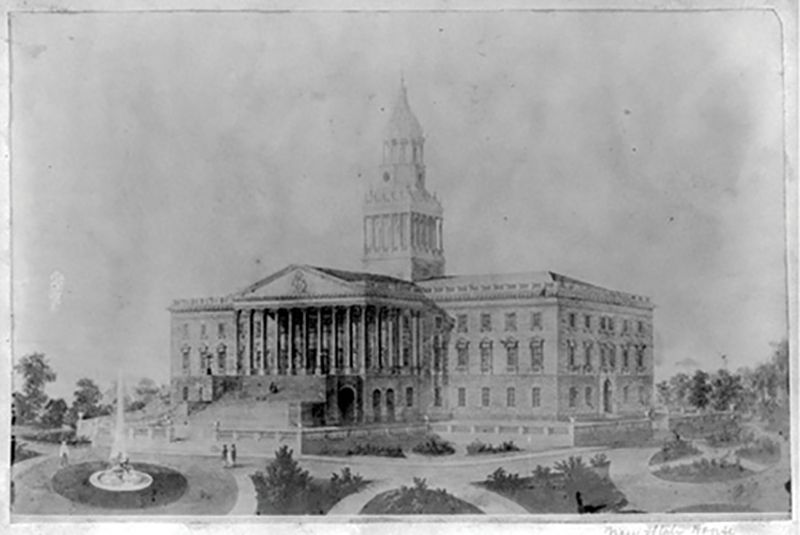- 1786: The State Capital Moves - Columbia replaces Charleston as capital, making the seat of state government more centralized and easing tension between the Lowcountry and the Upstate.
- 1787: Jonathan Lucas Invents the Rice Mill - A shipwreck on the Carolina coast delivers the English millwright to Peachtree Plantation on the Santee River. Witnessing the laborious method enslaved people employ to clean the rice by hand, Lucas invents a water-driven rice mill. His mills are soon found throughout the region, revolutionizing the rice industry and bringing even greater riches to Charleston planters and the Lowcountry as a whole.
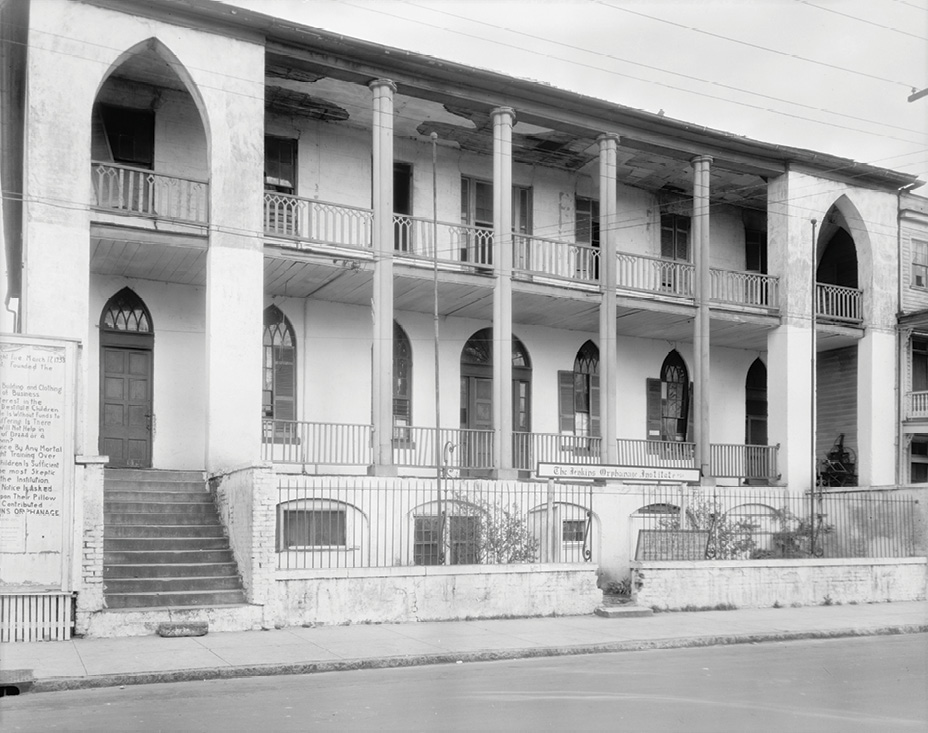
(From Carnegie Survey of the Architecture of the South/courtesy of Library of Congress)
- 1790: City Orphanage Chartered - The Charleston Orphan House becomes the first such municipal institution in the country. Although the original building is later demolished, the organization continues to serve the city as the Charleston Youth Development Center. Read on about the Charleston Orphan House.
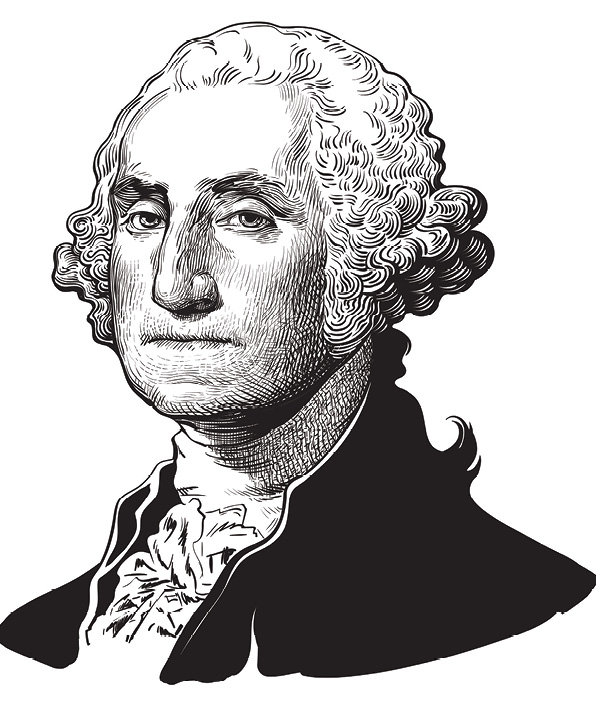
(Illustration by Uncle Leo)
- 1791: President Washington Visits - The country’s first president visits each of the new states. During his week-long stay in Charleston in May, Washington is a guest at the home of Thomas Heyward Jr. and is celebrated at the Exchange Building. His Southern tour confirms “the happy effects of the general government upon our agriculture, commerce, and industry,” reaffirming states’ decision to ratify the Constitution three years earlier. During his visit, Washington patronizes McCrady’s Restaurant, dining in the grand Long Room.
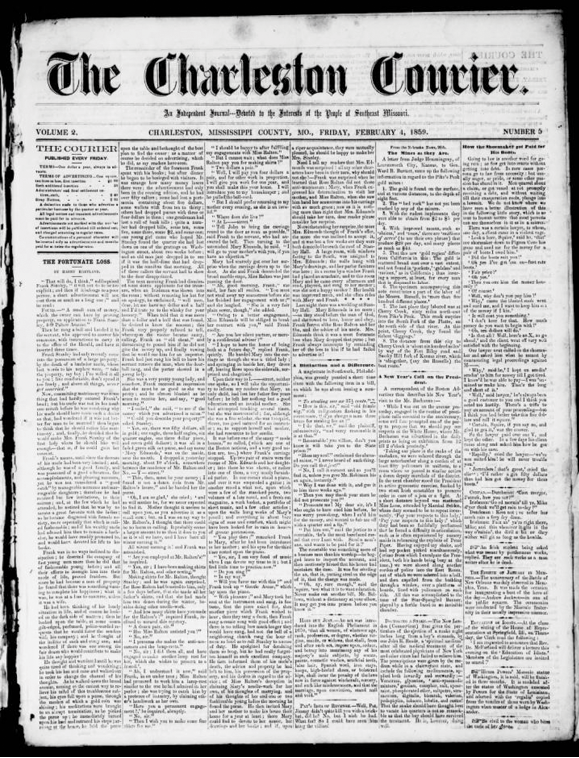
(Courtesy of State Historical Society of Missouri, Newspaper Collection)
- 1803: The Charleston Courier Begins Publication - The predecessor to today’s The Post and Courier, the paper is followed by the Charleston Daily News in 1865 and The Evening Post in 1894. Today, it’s among the oldest continuous daily newspapers in the nation.
- 1808: Ashley River Bridge Erected - In the face of an industrial boom, the city builds a wooden bridge over the Ashley River. Rice, tobacco, and lumber produced on inland plantations can now be transported by road to downtown wharves for export. During the Civil War, Confederate trains use the crossing to transport troops into the city. When forced to leave in 1865, General Pierre G.T. Beauregard orders the bridge burned in an attempt to slow Sherman’s forces.
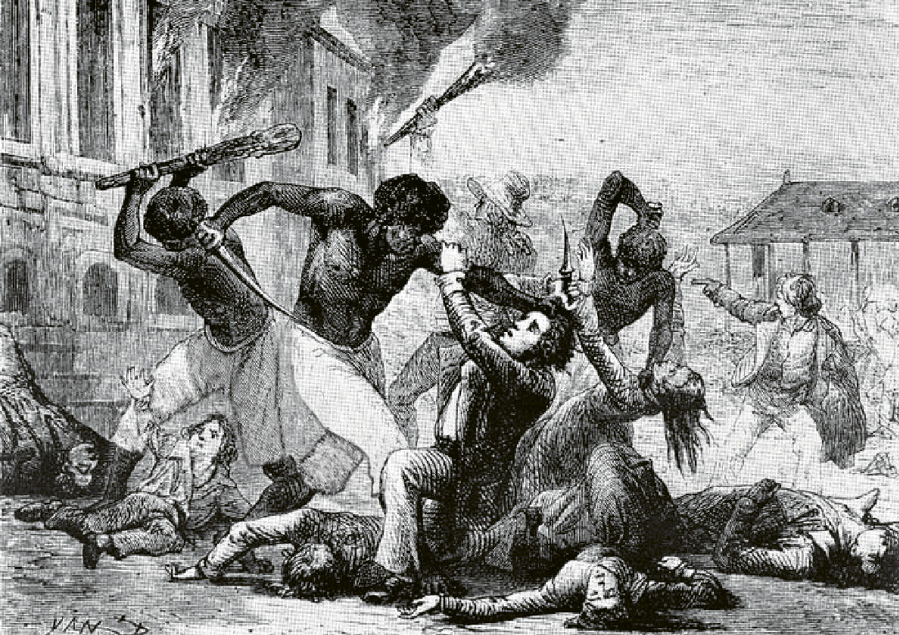
(Courtesy of Library of Congress)
- 1822: Denmark Vesey Plans Revolt - In the summer, rumors circulate that a slave rebellion is being planned. On July 2, its reputed leader, Denmark Vesey, a free person of color, and 34 others are hanged. The state immediately passes draconian laws, eventually illegally jailing any free black sailor who enters the port. Learn more about Denmark Vesey.
- 1824: Medical College Founded - The Medical College of South Carolina is established. In 1955, President Kenneth M. Lynch Sr. oversees completion of the Medical College Hospital. Today, U.S. News & World Report ranks several disciplines at the hospital among the nation’s best: rheumatology; cancer; ear, nose, and throat; and pediatric cardiology and heart surgery.
- 1830: Train Service Begins - On Christmas Day, the “Best Friend of Charleston”—the first steam locomotive in the US to establish regularly scheduled passenger service—makes its inaugural run. The following June, the train explodes, killing a railroad worker—the first fatality on an American railroad.
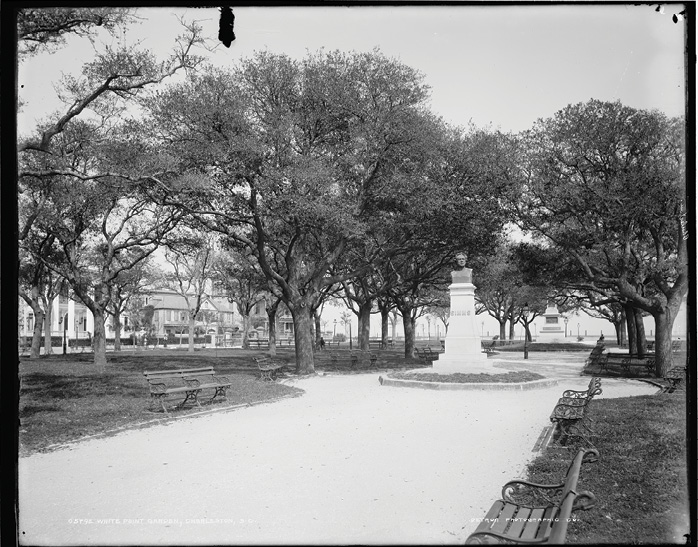
(From the Detroit Publishing Company photograph collection/courtesy of Library of Congress)
- 1837: White Point Garden Created - White Point Garden is designated a public park, becoming one of Charleston’s most iconic locales. The tip of the peninsula has traditionally functioned as public space: whereas once condemned criminals were hanged there, now law-abiding citizens and tourists simply hang out.
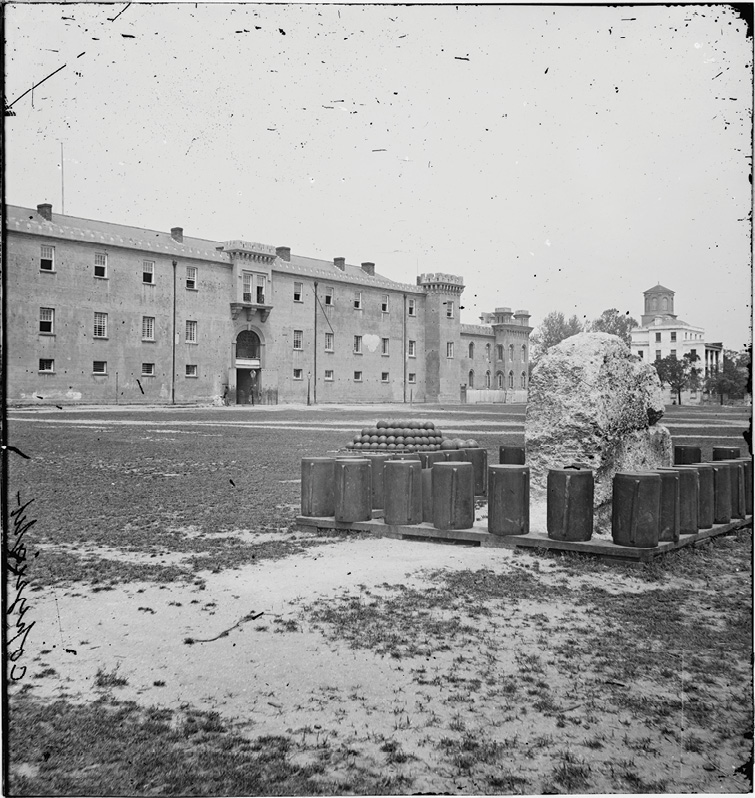
(Courtesy of Library of Congress)
- 1842: The Citadel Founded - The Military College of South Carolina is founded on December 20. Twenty cadets report for its first class a year later at its original campus on Citadel Square (now Marion Square).
- 1855: South Carolina Historical Society Founded - A group of citizens gathers in order to preserve South Carolina’s rich historical legacy for posterity. Headquartered in the newly remodeled Fireproof Building on Meeting and Chalmers streets, the historical society is the oldest and largest private repository of South Carolina books, letters, journals, maps, drawings, and photographs in the state.
